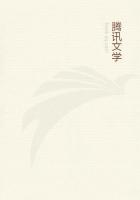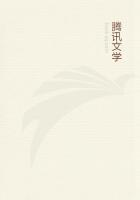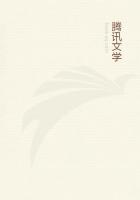Again, this period of Chaucer's life may be called fortunate, because during it he seems to have enjoyed the only congenial friendships of which any notice remains to us, The poem of "Troilus and Cressid" is, as was just noted, dedicated to "the moral Gower and the philosophical Strode."Ralph Strode was a Dominican of Jedburgh Abbey, a travelled scholar, whose journeys had carried him as far as the Holy Land, and who was celebrated as a poet in both the Latin and the English tongue, and as a theologian and philosopher. In connexion with speculations concerning Chaucer's relations to Wycliffism it is worth noting that Strode, who after his return to England was appointed to superintend several new monasteries, was the author of a series of controversial arguments against Wyclif. The tradition, according to which he taught one of Chaucer's sons, is untrustworthy. Of John Gower's life little more is known than of Chaucer's; he appears to have been a Suffolk man, holding manors in that county as well as in Essex, but occasionally to have resided in Kent. At the period of which we are speaking, he may be supposed, besides his French productions, to have already published his Latin "Vox Clamantis"--a poem which, beginning with an allegorical narrative of Wat Tyler's rebellion, passes on to a series of reflexions on the causes of the movement, conceived in a spirit of indignation against the corruptions of the Church, but not of sympathy with Wycliffism. This is no doubt the poem which obtained for Gower the epithet "moral" (i.e. sententious)applied to him by Chaucer, and afterwards by Dunbar, Hawes, and Shakspere.
Gower's "Vox Clamantis" and other Latin poems (including one "against the astuteness of the Evil One in the matter of Lollardry") are forgotten; but his English "Confessio Amantis" has retained its right to a place of honour in the history of our literature. The most interesting part of this poem, its "Prologue," has already been cited as of value for our knowledge of the political and social condition of its times. It gives expression to a conservative tone and temper of mind; and like many conservative minds, Gower's had adopted, or affected to adopt, the conviction that the world was coming to an end. The cause of the anticipated catastrophe he found in the division, or absence of concord and love, manifest in the condition of things around. The intensity of strife visible among the conflicting elements of which the world, like the individual human being, is composed, too clearly announced the imminent end of all things. Would that a new Arion might arise to make peace where now is hate; but, alas! the prevailing confusion is such that God alone may set it right. But the poem which follows cannot be said to sustain the interest excited by this introduction. Its machinery was obviously suggested by that of the "Roman de la Rose," though, as Warton has happily phrased it, Gower, after a fashion of his own, blends Ovid's "Art of Love"with the Breviary. The poet, wandering about in a forest, while suffering under the smart of Cupid's dart, meets Venus, the Goddess of Love, who urges him, as one upon the point of death, to make his full confession to her clerk or priest, the holy father Genius. This confession hereupon takes place by means of question and answer; both penitent and confessor entering at great length into an examination of the various sins and weaknesses of human nature, and of their remedies, and illustrating their observations by narratives, brief or elaborate, from Holy Writ, sacred legend, ancient history, and romantic story. Thus Gower's book, as he says at its close, stands "between earnest and game," and might be fairly described as a "Romaunt of the Rose," without either the descriptive grace of Guillaume de Lorris, or the wicked wit of Jean de Meung, but full of learning and matter, and written by an author certainly not devoid of the art of telling stories. The mind of this author was thoroughly didactic in its bent; for the beauty of nature he has no real feeling, and though his poem, like so many of Chaucer's, begins in the month of May, he is (unnecessarily) careful to tell us that his object in going forth was not to "sing with the birds." He could not, like Chaucer, transfuse old things into new, but there is enough in his character as a poet to explain the friendship between the pair, of which we hear at the very time when Gower was probably preparing his "Confessio Amantis" for publication.















